The world is going through tough times. The coronavirus COVID-19 outbreak that has killed thousands and continues to infect hundreds everyday has changed the way we live.
During efforts to stop the virus from spreading further, working from home has become a new normal where possible. While we adopt to these new norms of working, we should also make sure to protect our online privacy as we become more hooked to our personal digital devices. The virus outbreak doesn’t mean companies are not interested in tracking you. In fact, it becomes easier and possibly more fruitful for them to track you now.
Protecting our digital privacy does not have to be complicated. It doesn’t have to be expensive either. In addition to taking care of your online habits, there are different ways to stop companies from tracking your online activities. In this list, I want to mention some free or inexpensive ways to protect your online privacy while you work from home.
How to Protect Your Online Privacy?
Start Using A VPN
A Virtual Private Network (VPN) masks your real IP address which makes it harder for websites and apps to identify your location. A VPN also encrypts all data that leaves your device and keeps your service provider or other people on the internet or local network from spying on your traffic.
Before your start using a VPN though, you have to understand that your are basically trusting a third-party with your traffic. When you connect to a VPN, all traffic that enters and leaves your device routes through the network of VPN provider. This could make it very easy for someone to deceive you into trusting their products and spy on your traffic. That’s the reason why there are so many free VPNs all over the internet and it’s not surprising that they are very popular. If you are using any of these free VPNs, feel free to believe that you are a ‘product.’
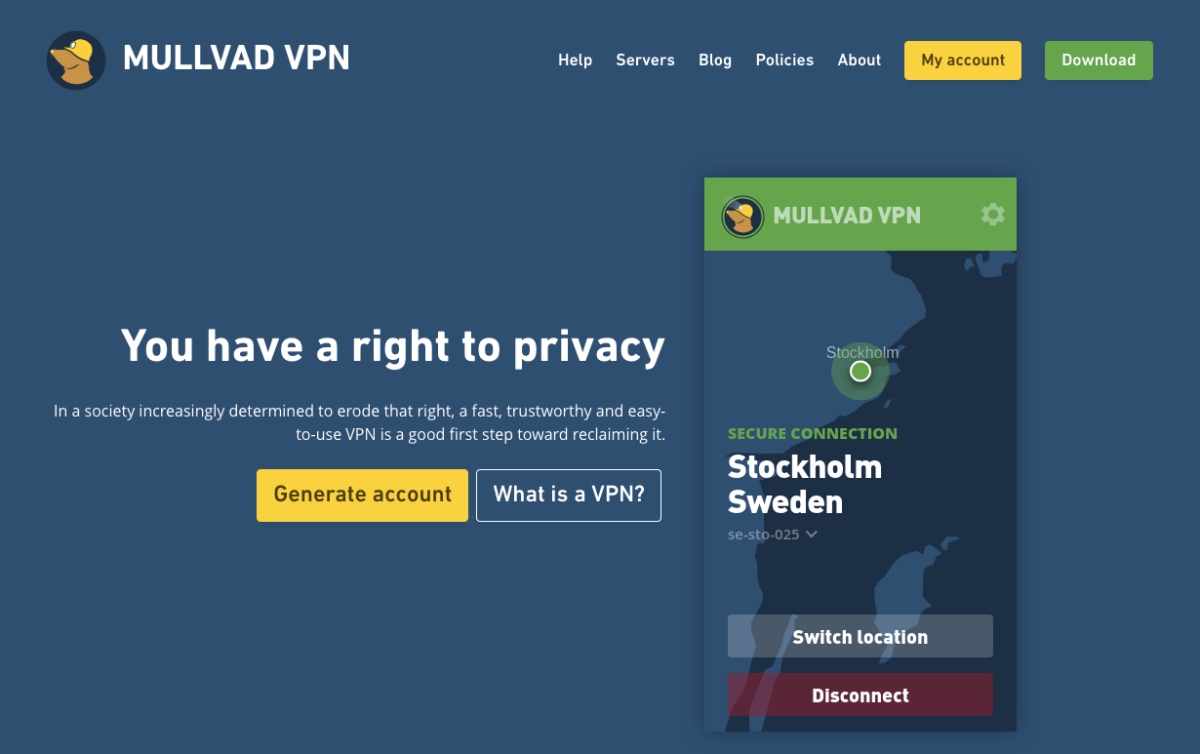
A trusted VPN takes a lot more than an attractive logo or interface. It takes more than having 5-star reviews on app stores. Running a vast network of VPNs is a complex process and it requires money. That’s why most trusted VPNs are not free or provide limited data and bandwidth to non-paying users. But they are not very expensive either. For about 5 Euros a month, you can connect multiple devices to a VPN and come closer to protecting your privacy.
Related: 3 Privacy-focused VPNs to Choose from
I use Mullvad that offers multiple locations across the world, has no limitations on bandwidth, and has native or third-party apps for Windows, Mac, Linux, iOS, and Android. It has no complicated signup or setup process – just generate an account number, download an app, and use the account number to connect. It doesn’t ask for any personal information and costs just 5 Euros a month.
Use a Firewall
Using a VPN does not mean apps on your devices can’t send your traffic and activities to their servers for analytics, tracking or spying purpose.
A firewall lets you to set rules for allowing or blocking traffic to and from apps on your devices. All traffic requests go through a firewall and are allowed or blocked depending on the rules you have set. For instance, you can block traffic for apps that have nothing to do with internet – take a media player as an example. When you are playing music or videos on your computer, the app doesn’t need to connect to a server in order to do that. A firewall will alert you when the app tries to connect to a server and you can block that request. The app will continue to work, of course, but it will not be able to send traffic to that server.
A firewall isn’t difficult to setup. In the beginning, you do have to set rules – allow or block traffic from apps – but after that, the firewall will take care of blocking unwanted traffic requests.
There are many firewalls for Windows, Mac, and Linux computers. All these operating systems have their inbuilt firewalls as well but they don’t work the way you want them to. Chances are, you don’t even know your computer has a firewall because you are not prompted to configure it.
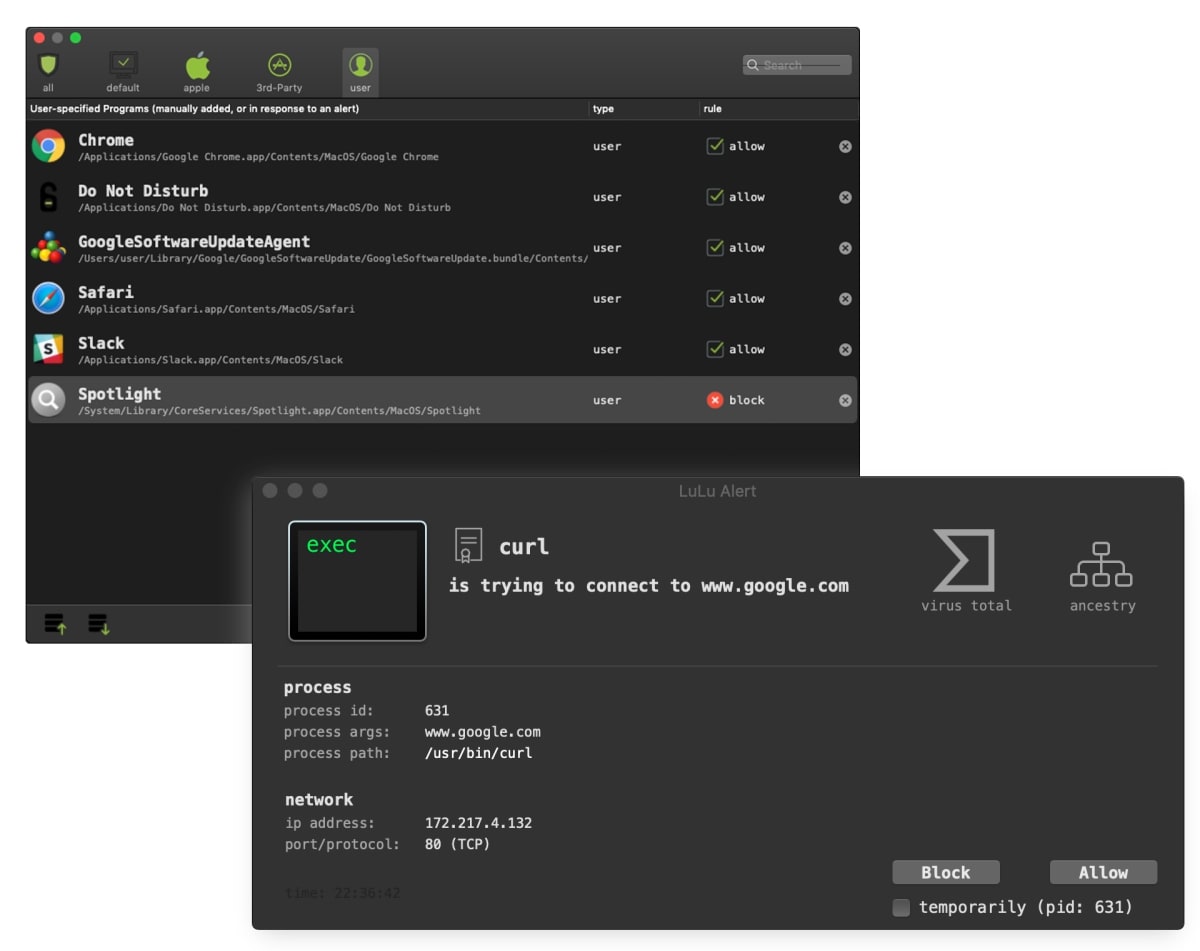
Third-party firewalls give you more control and are easy to use. There are both paid and free firewalls that do similar jobs. For a Mac, I use and recommend Lulu firewall which is opensource and easy to setup. Another opensource firewall for macOS is Lockdown but I have not used it. Lockdown is available for iOS, too.
For Windows, you can use TinyWall firewall which is free. Opensense is an opensource firewall for Linux.
Use an Adblocker
We don’t visit a website to be punched in face by ads. You want to read news and they are surrounded by ads. You want to watch a video and you have to wait until the ad finishes first – or even worse – they are displayed during the playback. You want to listen to music and there are ads asking you to upgrade to paid subscription. If that’s not enough, there are popups and popunders that annoy you across the internet.
Advertisements are nearly everywhere on the web and you can’t escape them unless you use an adblocker. No wonder adblockers have gained popularity in recent years — we have had enough of ads that ruin our online experience. I own websites as well and I know that ads help websites and apps to stay in operation. It’s the intrusive nature of ads I can’t understand.
While ads help us to offer and enjoy content for free, it’s also important to understand that ads need to be placed in a way that they don’t annoy the visitors. The user experience should be prioritised – not the ways to earn more revenue by placing them right in their face.
Ads are not only annoying but they have become tools to track you as well. Companies like Google follow our digital footprint and show us ads based on our online activities.
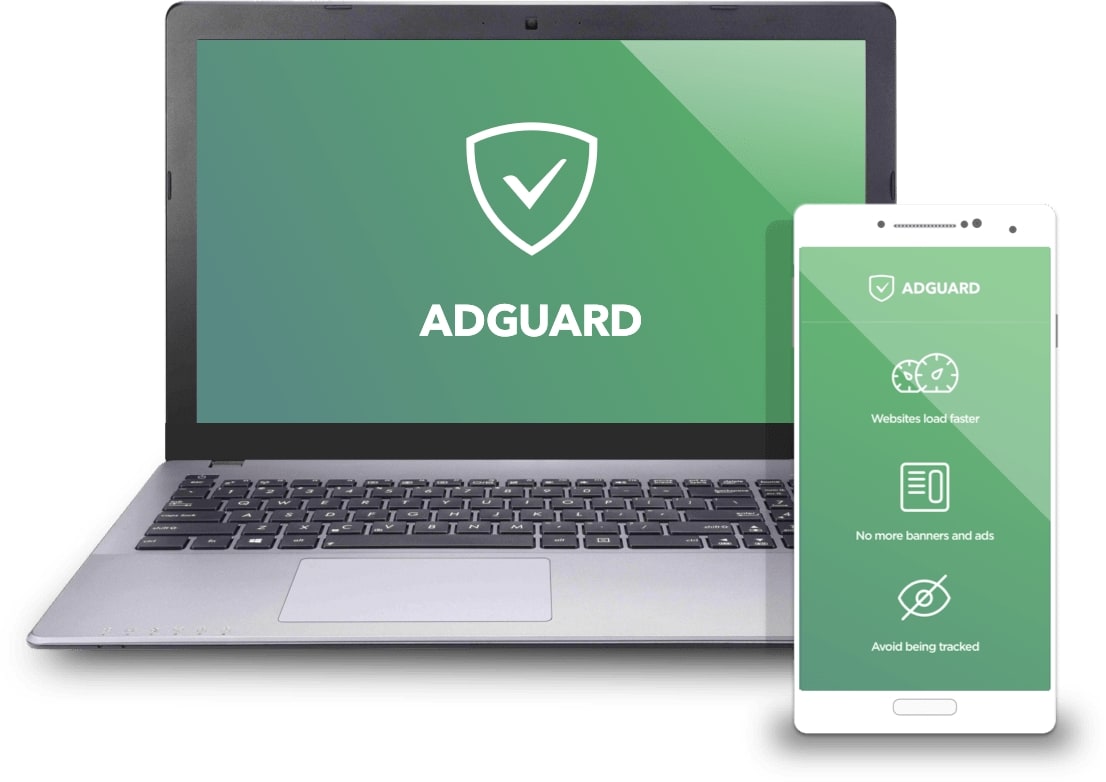
Abblockers let you block ads on the internet by filtering ad requests on websites you visit. Extensions like Adblock Plus or Ghostery helps you block ads and trackers within a browser like Chrome or Firefox. While that may sound enough, it may not be the case. Apps installed on your computer can also track you and display annoying ads. To stop them, you need an adblocker that blocks ads across the device – not just web browser.
AdGuard is one such app that blocks ads and trackers across the device. All traffic is routed through AdGuard where it’s blocked or allowed based on rules you set. You can easily whitelist a website or app that you want to support and block the rest.
AdGuard is available for macOS, Windows, iOS, and Android although on iOS, it’s limited to blocking ads in Safari only because of restrictions by Apple.
AdGuard subscription costs just $2.49 per month for up to 3 devices. For the huge amount of ads and trackers it will block, AdGuard is a product worth paying for.
Use Firefox or Brave Browser
If you are still using Google’s Chrome web browser, it’s about time you ditch it in favour of Mozilla Firefox if you care about your digital privacy. Advertisement is Google’s business and for that, it has to continue tracking you. Firefox on the other hand, is a not-for-profit project which takes your privacy seriously.
With recent versions, Firefox has started to block most ads and trackers by default. Instead of being merely a web browser, Firefox as well as its parent organisation Mozilla have earned a reputation of being vocal about privacy violations. In addition, Firefox is no longer a slow and resource-hungry browser. It’s fast, easy on memory and battery, and overall a browser that’s reliable and trustable.
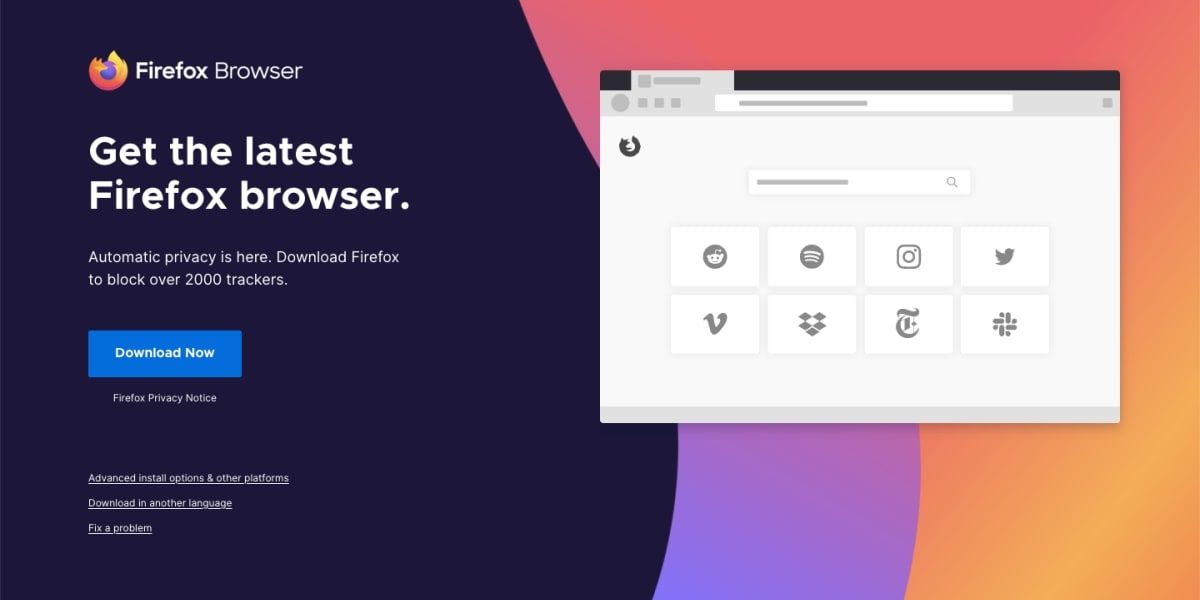
If you don’t want to completely ditch the familiarness of Chrome, you can use Brave browser instead. Brave is based on Chrome but is focused on privacy. Settings that protect your online privacy are turned on by default and can be tweaked as required. While it helps blocking ads and trackers, Brave has an initiative called Brave Rewards that helps people to support publishers and content creators.
In short, you don’t have to be hooked to Chrome any more – there’s no reason to continue being a product by giving away your privacy. There are alternatives like Firefox and Brave which help you protect your digital privacy and both are free, too.
Use DuckDuckGo Instead of Google
While you are ditching Google Chrome, it’s a good time to switch from Google’s search engine, too. You may think there’s no alternative to Google and a few years ago, you would have been right. But in recent years, DuckDuckGo has become an ideal alternative to Google.
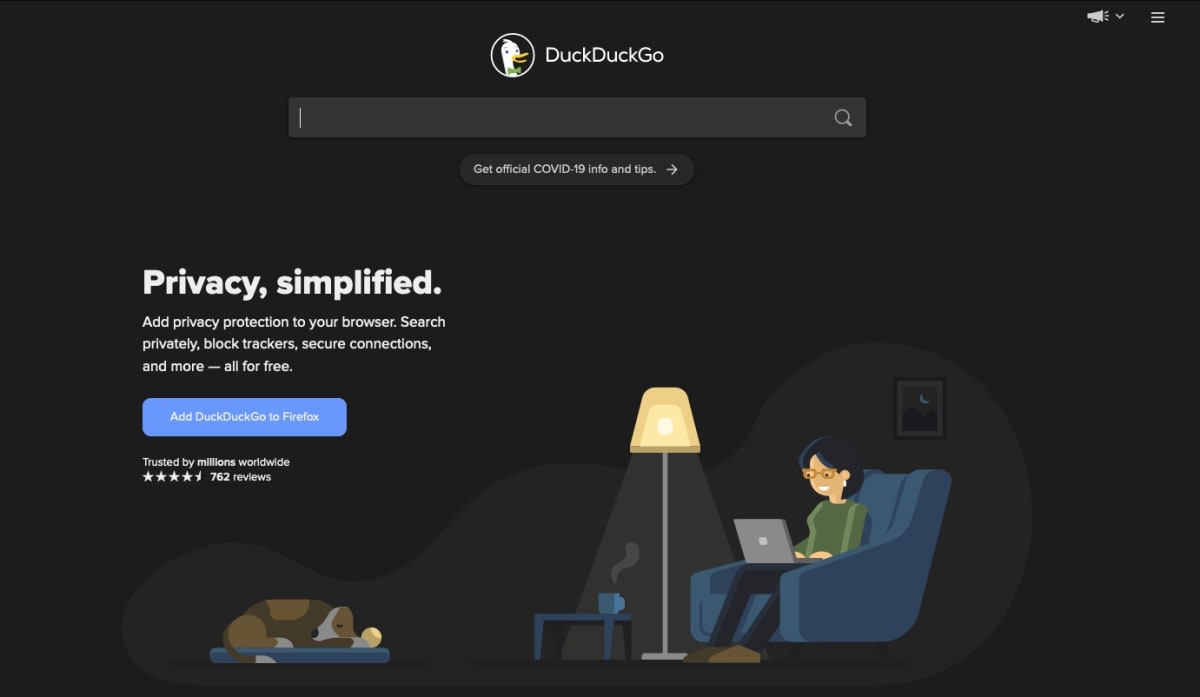
I have tried DuckDuckGo multiple times in the last couple of years but wasn’t quite convinced if it helped me find what I was looking for. Now I think DuckDuckGo has finally become a polished and privacy-friendly alternative to Google whose business does not depend on tracking you. Like other services mentioned in this list, protecting privacy is DuckDuckGo’s business. And while doing so, it presents search results which are mostly at par with Google.
The gain in DuckDuckGo’s popularity proves that companies don’t have to rely on tracking users’ activities. Google may be the default search engine in most our devices (because it pays for that), I don’t miss it at all. I have completely switched to DuckDuckGo (also simply duck.com) on my laptop and phone and it’s time for you to do so as well.
Use A Cloud Storage with End-to-end Encryption
Cloud storage offers convenience of taking our data everywhere we go. They help us keep a backup of our devices and apps, store our documents, pictures and other files, and access them from anywhere in the world. While travelling, I find cloud storage very helpful because I don’t have to keep local copies of my documents, tickets etc. and still have them when needed.
Many huge companies offer their cloud storages. Google, Microsoft, Apple as well as other companies who are primarily in cloud business — Dropbox, Box, SugarSync etc. offer different plans and features at varying price. Most companies provide some free storage – Google 15GB, Apple 5GB, Dropbox 2GB, for instance – and for more storage, you have to pay.
While all these big companies are popular among all class of users, there are concerns related to privacy of our data. There’s a difference between encryption and end-to-end encryption. Most cloud companies ‘encrypt’ your data but it’s not protected by end-to-end encryption.

Apple has been advocating privacy in recent years, but it’s worth knowing that iCloud backups are not protected by end-to-end encryption. Google Drive and Dropbox also encrypt your data but like Apple, they too, hold the decryption keys. It means that your data is not fully encrypted and in theory, it can be accessed by someone else who isn’t you.
While these cloud companies provide plenty of free storage, ease of use and paid plans at highly competitive price, you should look for alternatives if privacy is your concern. Some cloud storages with zero-knowledge end-to-end encryption include Icedrive, Tresorit and pCloud. Other cloud platforms worth mentioning are MEGA and Sync.
If you don’t want to trust third-party companies with your data, you can build your own cloud storage, too. You can use free and opensource softwares like NextCloud or Seafile and install them on your server at home or on a server which you are renting.
Related: How to Install NextCloud on a Shared Server
Protecting Your Online Privacy: Summary
In the digital era, it’s easy and fruitful for companies to track you and use the collected information for profit. In the wake of coronavirus outbreak, many of us are forced to work from home which gives companies a great opportunity to mine even more information from you.
If you are concerned about your online privacy, there are many ways to protect it. One product itself can’t completely protect your digital privacy so you need to use layers of different services to safeguard your digital life.
The combination of a firewall, a VPN, and an adbloker along with a privacy-focused web browser like Firefox can hide your online activities from preying eyes. Moreover, you can switch from Google to a search engine like DuckDuckGo that doesn’t track you and profit off your digital footprint. And by using a cloud storage like Icedrive or Tresorit with end-to-end encryption, you make sure that your data is being stored on a platform that is safer by design.
There’s no single way to protect our digital life. Even while using privacy-friendly products, we need to change our online habits. You have to be careful about what information you share with others, which links you click, which emails are genuine and which are spam etc.
Companies like Google trick us into believing that they don’t sell our data and online activities. But they continue to collect, analyse, and monetise our data without actually ‘selling’ it to third-parties. It’s time to start believing the fact that our data is valuable and that we have a right to privacy – online and off.
Support Me: If this article/tutorial helped you today, please consider supporting me and help me run frunction.com